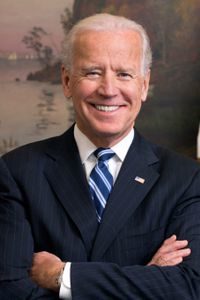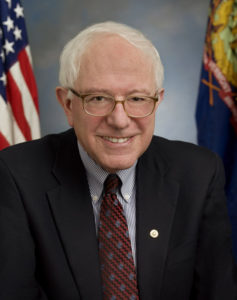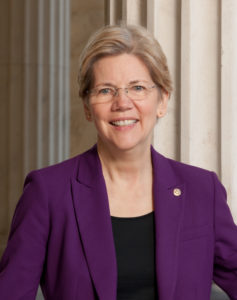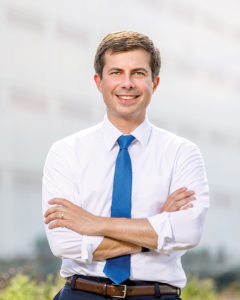Where They Stand: How the Democratic Candidates Say They Will Address Criminal Justice Reform
As we move through the primaries, Higher Heights for America is committed to providing Black women with the information they need to make informed decisions at the polls. Our recently launched lunch and learn series, “Where They Stand: Our Voices, Our Issues,” is designed to ensure that you know where each candidate stands on key issues affecting your life and community. Over the next few weeks, we will highlight candidates’ responses to some of the most critical issues covered in our recent candidate questionnaire.
In a Higher Heights survey taken at the beginning of the 2020 election season, Black women identified judicial concerns as a key voting issue. Our candidate questionnaire allowed the Democratic presidential contenders to tell us, in their own words, their plans for addressing inequities and systemic problems within the justice system, including over policing, unfair sentencing, gun violence, the death penalty, hate crimes, the appointment of federal and Supreme Court judges, and protection of voting rights.
This week, we’re drilling down on candidates’ plans for reforming the criminal justice system. In 2018 Congress passed the First Step Act aimed at releasing more nonviolent, low-level offenders from federal prisons and providing them better support for re-entry into society. However, this law doesn’t benefit the vast majority of incarcerated individuals (and their families), who are in state facilities and who are disproportionately Black. As a result, and even as more states move to legalize marijuana, many Black men and women continue to serve long sentences or remain stuck with harmful records for committing low-level crimes. Here is how Democratic presidential candidates say they will address criminal justice reform if elected.
The question presented to the candidates:
What is your plan for addressing criminal justice reform, including relevant information on returning citizens, over-policing and sentencing reforms?
 Joe Biden
Joe Biden
I have called for the immediate passage of Congressman Bobby Scott’s SAFE Justice Act. In addition, I will create a $20 billion competitive grant program, inspired by a Brennan Center proposal, to spur states to focus on prevention and reducing incarcerated populations. I will expand the Justice Department’s use of pattern-or-practice investigations and consent decrees to address unlawful policing.
I will invest in public defenders’ offices to ensure access to quality counsel, eliminate mandatory minimums, and end the federal crack and powder cocaine disparity. I will decriminalize the use of cannabis and automatically expunge all prior cannabis use convictions, end incarceration for drug use alone and instead divert individuals to drug courts and treatment, and expand other effective alternatives to detention.
I will reform bail and decriminalize poverty. I will stop corporations from profiteering off of incarceration. And, I will provide for the unique needs of incarcerated women and ensure humane prison conditions.
I will set a goal of ensuring 100% of formerly incarcerated individuals have housing upon re-entry and expand access to mental health and substance use disorder treatment, as well as educational opportunities and job training during and after incarceration.
I will eliminate existing barriers (such as disenfranchisement, preventing access to SNAP, Pell grants, and housing support) preventing formerly incarcerated individuals from fully participating in society. I will expand on the Obama-Biden Administration’s ban-the-box policy by encouraging further adoption of these policies at the state and local level.
Pete Buttigieg
I will work to ensure more people are free by reducing the number of people incarcerated in the United States at both the federal and state level by 50%. I will double funding for federal grants for states that commit to criminal justice reform and prioritize funding for programs aimed at pretrial reforms, decarceration and expansion of alternative to incarceration (ATI) programs. On the federal level, I will eliminate incarceration for drug possession, reduce sentences for other drug offenses and apply these reductions retroactively, and legalize marijuana. I will also eliminate mandatory minimums.
I will establish comprehensive measures to hold police accountable to their communities. My Administration will create a federal database both documenting use of force and tracking officers who are fired from their duties. I will support the use of body cams, policies that limit use of force to when it is absolutely necessary, and programs that end discriminatory and unfair policing practices.
To help returning citizens reintegrate, I will support ban-the-box initiatives, work with the Department of Labor to set guidelines to reduce implicit bias, increase the availability of tax credits and bond insurance for employers who hire formerly incarcerated people, and allow returning citizens to access housing credits and SNAP.
Amy Klobuchar
Senator Klobuchar believes it is time for the Second Step Act. The First Step Act — which made key federal sentencing and prison reforms — only applied to those held in federal prisons and didn’t help the nearly 90% of incarcerated populations in state and local facilities.
Senator Klobuchar will create federal incentives so that states can restore some discretion from mandatory sentencing for nonviolent offenders. She will also reform the cash bail system, expand funding for public defenders, eliminate obstacles to re-entering and participating fully in society, and fight for expanded drug courts. And during the first month of her presidency, Senator Klobuchar will create a clemency advisory board as well as a position in the White House — outside of the Department of Justice — that advises the President from a criminal justice reform perspective.
 Bernie Sanders
Bernie Sanders
Together, we will eliminate private prisons and detention centers. No more profiteering from locking people up. Together we will end the disastrous war on drugs. If we stand together we will end cash bail. No more keeping people in jail because they’re too poor. If we stand together we will enact real police department reform and prosecute police brutality. If we stand together, there is nothing, nothing, nothing that we cannot accomplish. Bernie’s comprehensive plan will:
- End for-profit greed in our criminal justice system, including banning cash bail and banning civil asset forfeiture;
- End mass incarceration and excessive sentencing and inhumane incarceration and transform the way we police communities;
- Reverse mass incarceration and set a goal of cutting the incarcerated population in half;
- Transform the way we police our communities, creating an unarmed civilian corps of first responders to handle mental health emergencies, homelessness, and other low-level issues that should not require contact with the police and criminal justice system;
- End the War on Drugs, including legalizing marijuana and expunging past convictions for marijuana-related offenses and finally ending the sentencing disparities for crack cocaine and powder cocaine offenses;
- Enact a Prisoner Bill of Rights for incarcerated individuals, including living wages, access to families, access to educational and vocational training, and the right to vote;
- Reverse the criminalization of communities, end cycles of violence and provide support to survivors of crime;
- Reverse the criminalization of disability, addiction, and homelessness;
- Ensure our system treats children in the criminal justice system as children.
Tom Steyer
America’s criminal justice system perpetuates a system of mass incarceration and punishment, not rehabilitation and restorative justice. This system was built on—and still suffers from—rampant racism. We must reform our criminal justice system to reflect the rule of law for all, not just those powerless to defend themselves. I will work to end cash bail, reduce the prison population, stop the school-to-prison pipeline, end recidivism, eliminate private prisons, restructure parole and probation, promote better policing methods and training to reduce police brutality. I will exercise clemency powers where appropriate and increase resources for public defenders and community intervention programs. Spending time in the criminal justice system can haunt someone’s life long after they’ve served their time. My administration will fight for the rights of those re-entering society by supporting rehabilitation and access to support services like housing, job training, and voting registration.
 Elizabeth Warren
Elizabeth Warren
We need to reform our entire criminal justice system. We won’t achieve this by nibbling around the edges; we need to tackle the problem at its roots, reimagining how we think about public safety to include safe and affordable housing, healthcare, good jobs, and access to education and opportunity for all our children.
It starts with what we choose to criminalize. It is clear that the punitive tough-on-crime approach was a mistake, and I support repealing the 1994 crime bill and reducing and eliminating mandatory minimum sentences. We must address the legacy of the War on Drugs, including by legalizing marijuana and eliminating the crack/cocaine sentencing disparity. We should end the criminalization of poverty by eliminating cash bail and reducing fines and fees. And I’ll expand opportunities for clemency, including by establishing a board to make recommendations directly to the White House.
We must also look at how law enforcement and prosecutors engage with our communities and the accused. We should expand resources for public defenders, rein in prosecutorial abuses, and appoint a more diverse judicial bench. We need real policing reform, including ending racially discriminatory policing and establishing a national standard for the use of force. We’ll provide training and resources to help police departments meet high federal standards. We’ll expand federal oversight through pattern or practice investigations, and we’ll reform qualified immunity to hold law enforcement officers who violate individual rights accountable.
We should invest in programs that provide treatment and rehabilitation behind bars, eliminate solitary confinement, and ensure that those incarcerated are treated with dignity. We should remove barriers that too often prevent returning citizens from successfully reintegrating into their communities after they’ve served their time, including by reducing needlessly restrictive parole requirements and establishing a certificate of recovery for nonviolent offenders who maintain clean records.
It is a false choice to suggest a tradeoff between safety and mass incarceration. By spending our budgets not on imprisonment but on community services that lift people up, we’ll decarcerate and make our communities safer. That’s the way we’ll create real law and order and real justice in our country.


